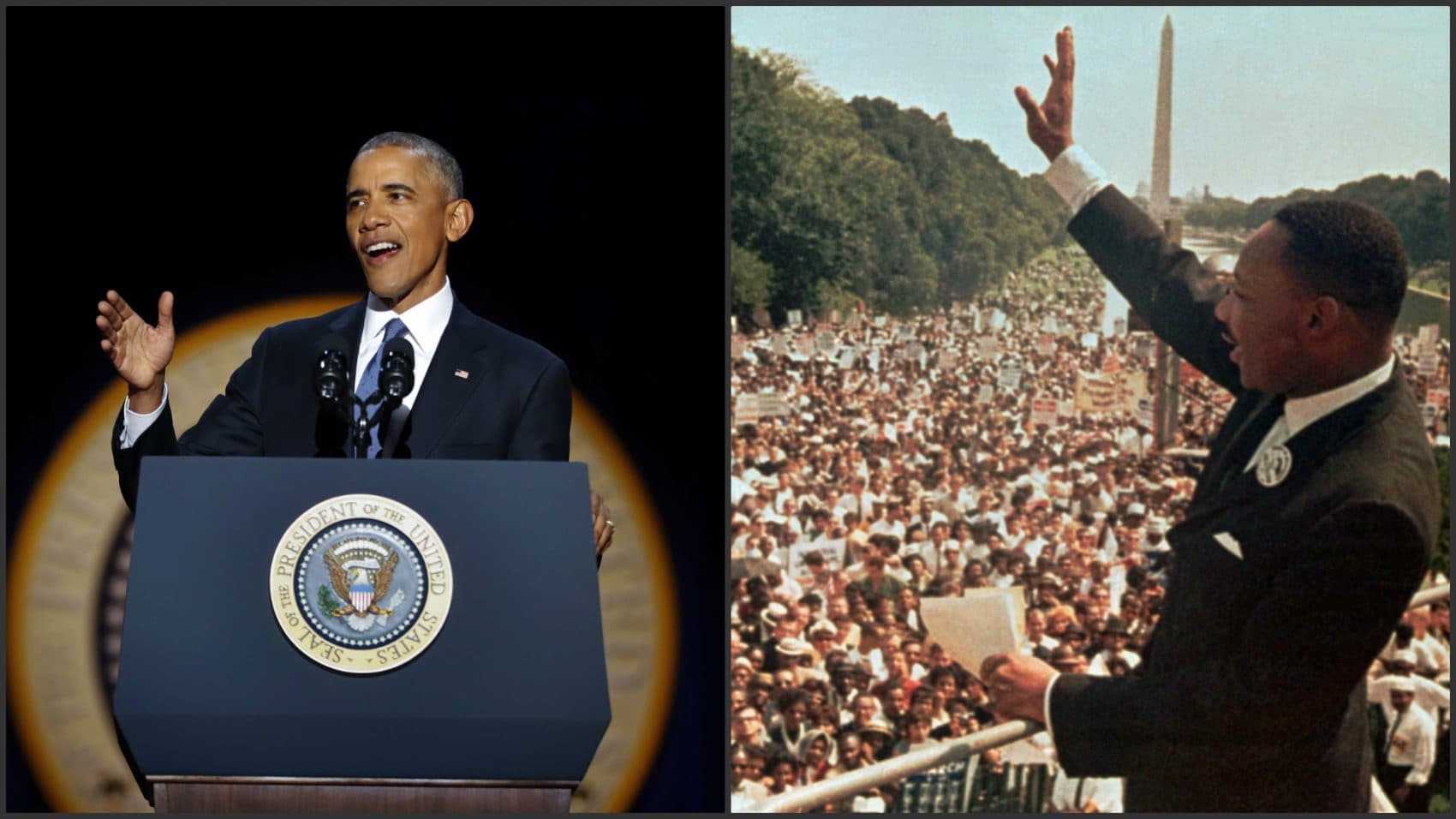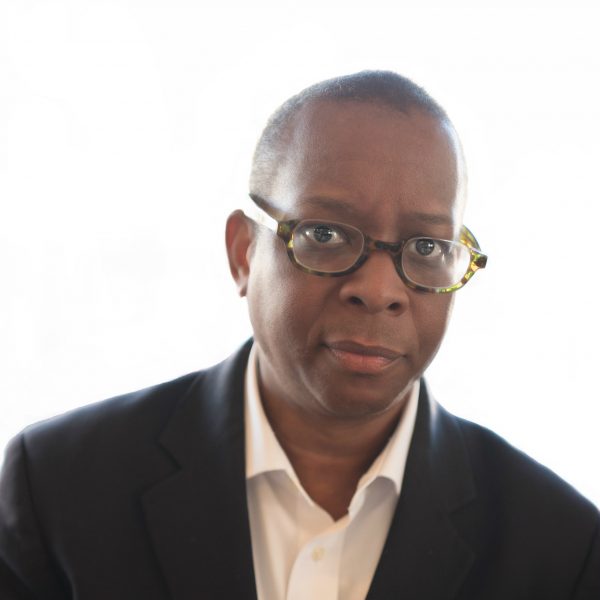Advertisement
'Hearts Must Change': Saying Farewell To Obama, Remembering Dr. King

COMMENTARY
Barack Obama’s farewell address in Chicago Tuesday night reminds us about how the president’s political tenure is so encompassed — so beautifully circumscribed — by the moral and spiritual authority of the Rev. Martin Luther King, whose birthday the nation celebrates this weekend.
It has been tempting over the last eight years to say that we have lived in the Obama Era, but to be realistic, we all live still in the Age of King.
Even today, against the cast shadows of King’s words, Obama remains a racial realist, a pragmatic and honest observer of the long, inexorable march to ethnic equality.
To be sure, Obama has never shied away from the ethical imprimatur that King has left on America. During the early days of his first run for the White House in 2007, Obama heartedly quoted King as he talked about his emerging, multiracial campaign and the “fierce urgency of now.”
In his speech Tuesday, Obama sounded notes that were at once sullen and aspirational, plaintive and palliative — hitting on themes he has raised throughout his presidency: about broadening domestic and global democracy, raising civic hope and protecting the plight of the truly disadvantaged.
Lodged in his language is the philosophy of human mutuality and interdependence that King so incessantly preached. When Obama said in his farewell, “...you have made me a better president. And you have made me a better man,” he was affirming King’s long-ago stated view about the interconnectedness of people, the organic nature of politics and the affirmative power of citizenship.
With Kingian seriousness, President Obama worked assiduously to assure that people were protected — through expanded health care laws, policies that reached toward embracing the plight of poor families, programs for alienated black and brown boys caught up in the the turmoil of inner-city neighborhoods, or increased services for victims of domestic gun violence.
Advertisement
Like King, Obama sought the solace and the balm that could emerge from the tireless work of building a “beloved community” and finding optimism and opportunity in the despair of stark partisan rancor and reactive racism.
Often professorial and sometimes frustratingly pedantic, Obama’s presidency always praised the blessings of democracy, “self-governance” and the strenuous chore of purposeful engagement in public life. He maintained a vision of progressive pragmatism, gradual triumphalism.
“For 240 years, our nation’s call to citizenship has given work and purpose to each new generation. It’s what led patriots to choose republic over tyranny, pioneers to trek west, slaves to brave that makeshift railroad to freedom,” said Obama before 18,000 convention hall listeners and millions on television.
With historic irony: Obama accepted his party’s nomination for president in 2008 in Denver’s hilly terrain exactly 40 years after Rev. King made his impassioned Mountaintop Speech on the eve his assassination.
King’s words would eventually dictate vast social and political change of such scale that the country would broaden its notions of citizenship — casting off public laws that relegated millions of Americans to social and civic death.
Even today, against the cast shadows of King’s words, Obama remains a racial realist, a pragmatic and honest observer of the long, inexorable march to ethnic equality:
“After my election there was talk of a post-racial America. And such a vision, however well intended, was never realistic. Race remains a potent...and often divisive force in our society ... But laws alone won’t be enough. Hearts must change. It won’t change overnight. Social attitudes oftentimes take generations to change.”
As Obama leaves office next week it is important to recognize the 50th anniversary of Rev. King’s final book: “Where Do We Go From Here: Chaos or Community?”
It is a book that reminded Americans of racism and its intractable hold on the American spirit. It challenged the political sentiment of that day that years of civil rights efforts were enough in the efforts of giving opportunities to black Americans.
Obama’s presidency always praised the blessings of democracy, 'self-governance,' and the strenuous chore of purposeful engagement in public life.
It pushed for income inequality, equitable education and employment opportunities for poor black and white citizens. It registered the challenges of global interconnectedness, militarism, religion and multiculturalism. It argued against the tenets of black separatism and embraced the values of integration.
Toward the conclusion of his book, Rev. King writes of the need for human collaboration for the sake of fostering grand bonds of cultural citizenship and real political advancement.
Obama echoed this in his farewell address by calling all of us to, at last, become the “anxious and jealous guardians of our democracy.”
King would have it no other way.
